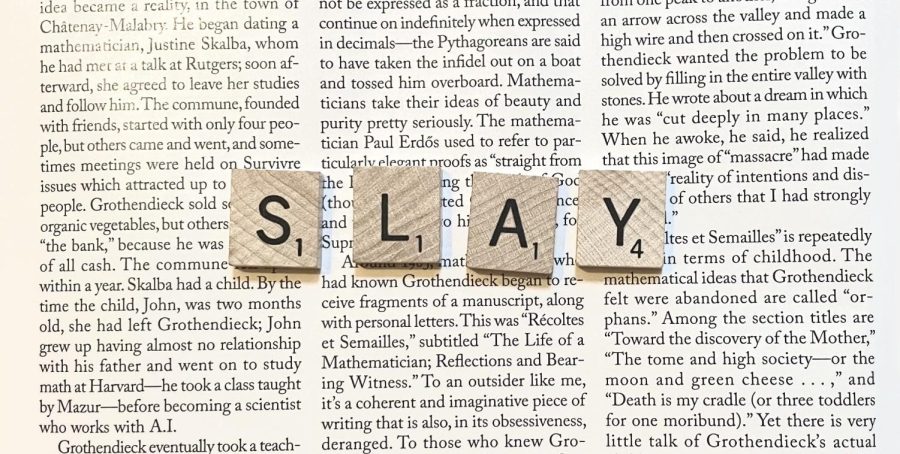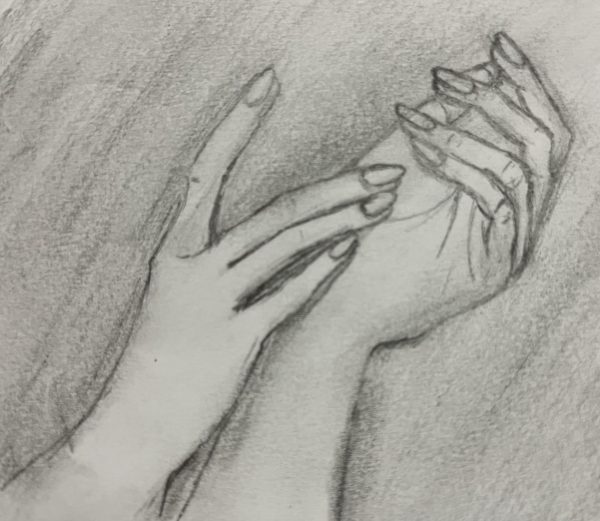“Slay!”
The Word’s History and Etymology
Photo by Anyue Zhang
You have probably heard or used the colloquial term “slay” as an encouraging sentiment and morale boost. But, how did “slay” – a term that traditionally refers to murder – come to be used in this way?
The Oxford Dictionary defines “slay” as “to kill someone or something in a war or a fight”. It is also defined as “to have a strong effect on someone” in an informal context. The term is derived from Old English, from the term “slean” which means “to strike, hit, punch, kill”. Later in the 12th century, after the Duke of Normandy’s conquest of England, the use of Old English declined and, instead, due to French and Germanic influences, the Middle English language surfaced. In Middle English, “slean” transformed to “slen” which had similar meanings — “to kill and strike” — especially in the context of the wars and battles taking place during the European conquests at the time.
Later, in the 1800s, “slay” became a colloquial fashion term and was used to express that an outfit was very attractive or fashionable. The use of “slay” carried on to the 1900s to mean “to kill someone” with a look or outfit, specifically for Black fashion icons. In the 1970s and ’80s, the term was adopted by Latinx, Queer, and Black ballrooms. These dance events – perhaps one of the only protected spaces for queer youth of color at the time – were an ideal breeding ground for these neologisms. This allowed Black, Queer, and Latinx people to express themselves openly and safely and, consequently, gave birth to many terms like “slay”, “werk”, and “queen”. The term, thus, became a part of AAVE (African American Vernacular English) or ebonics in the context of fashion and outfits.
However, “slay” evolved further to indicate any achievement, progress, or encouragement in the modern context of the 2010s. We have Beyonce’s 2016 song, titled “Formation” and its famous lyrics “I slay”, to thank for this. During her performances of the song, Beyonce referenced Black Feminism and activism and even called upon Black women to take part in activism. Thus, the term began to denote any achievement, and rooted itself in mainstream music and culture. This use was reinforced by certain shows such as “RuPaul’s Drag Race” which even had a “Holi-Slay Spectacular“.
“Slay”’s evolution over time over various cultural discourses gave us the word we know, use, and love. The next time you use the word “slay”, hopefully you’ll be able to understand its rich and varying history. Another day, another slay.

I'm Nikhil and I am in the class of 2023. I have a variety of hobbies ranging from creative writing to drawing-based activities.

Hi! My name is Anyue and I am in the class of 2023. I am one of UNISVerse's Editors in Chief, but before this position, I was the Opinion Editor for this...











Paul Kopman • Mar 15, 2024 at 12:05
Slayyyyyyyyyy Queen. Yassssssss!
Eslayla • Mar 1, 2023 at 12:23
slay
Suzan • Feb 27, 2023 at 07:41
so slay, beautifully written <3
lea • May 18, 2022 at 09:50
slayyyyyy
Emma • May 17, 2022 at 17:36
Slay Nikhil!